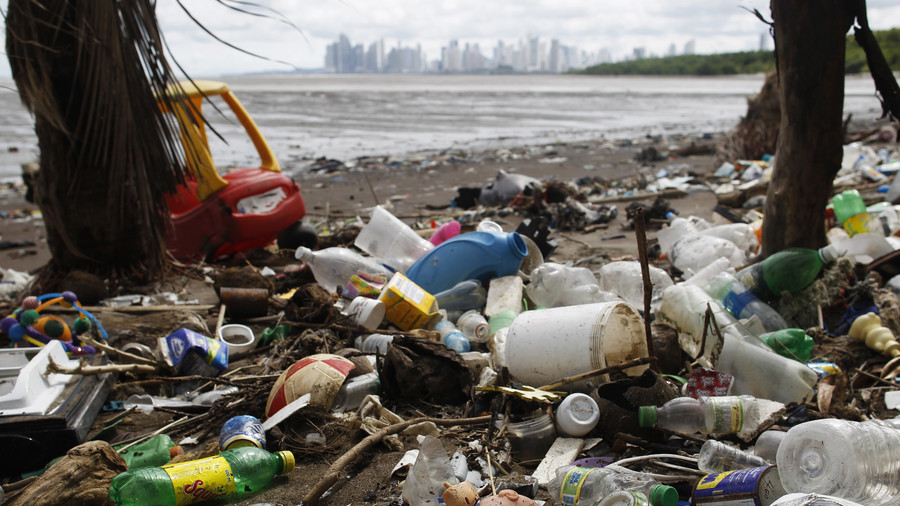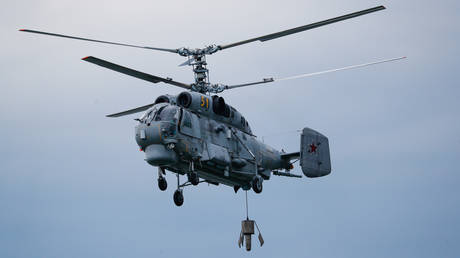‘Armageddon in the making’: Sea creatures plagued by human plastic pollution (DISTURBING VIDEOS)

Plastic pollution continues to plague the globe, painting a grim picture for the future of the world’s oceans and innocent sea creatures that become entangled in the often deadly debris.
Coinciding with this week’s UN Environmental summit in Nairobi, where the ongoing issue was described as “Armageddon in the making,” RT takes a look at some of the most moving videos that vividly demonstrate the devastating impact plastic pollution is having on marine life.
Sea turtle with a straw stuck up its nostril
In 2015 a Costa Rica marine research team discovered a male sea turtle with a plastic straw lodged in its nostril.
The group removed the straw and posted heartbreaking footage of the incident online, stating that it wanted to highlight how plastic trash was proving detrimental to marine life.
Baby seal trapped in plastic fish netting
Video of a baby seal trapped in plastic fish netting went viral when it was posted on Facebook earlier this year.
The creature’s full body was covered in the netting with only his head in view when it was rescued by two fishermen off the coast of Owls Head, Maine.
The men cut the baby seal free and released it into the sea.
Dolphin caught in plastic bag
A baby dolphin was rescued by fisherman after it became caught in a plastic bag on the coast of Sao Paulo, Brazil. Video shows the dolphin swimming with the plastic bag in tow until the fishermen intervened.
Sea lions cut free from plastic garbage
Vancouver Aquarium showed the process involved in helping sea lions who suffered significant trauma after plastic packaging became wrapped around their necks.
The vet had to shoot the creatures with tranquiliser darts before disentangling them from the straps.
World’s most remote island is a plastic dump
Disturbing footage was posted earlier this year of Henderson Island – the world’s most remote island, covered in plastic trash.
Marine researchers found that 37 million pieces of plastic had washed up on the uninhabited atoll, and warned of the negative impact plastic pollution is having on marine biodiversity.
Eight million tonnes of plastic – bottles, packaging and other waste – are dumped into the ocean every year, killing marine life and entering the human food chain, the United Nations Environment Programme (UNEP) said at this week’s summit from its base in Kenya.
READ MORE: 37mn pieces of plastic have washed up on uninhabited Pacific island
The assembly recounted heartbreaking stories of the effect this pollution has on sea creatures, including a rare species of a beached whale which had to be killed after it consumed 30 plastic bags.
“Given the grim statistics on how we are poisoning ourselves and our planet, bold decisions from the UN Environment Assembly are critical,” said head of the UNEP, Erik Solheim.
More than 200 countries signed a UN resolution to eliminate plastic pollution in the sea on Wednesday.



